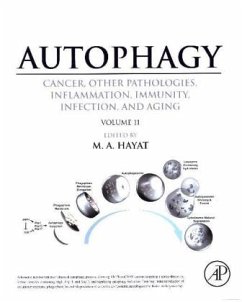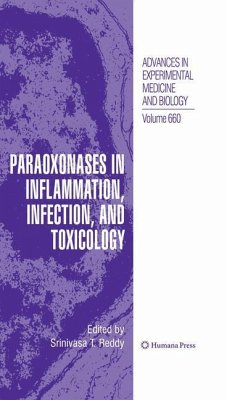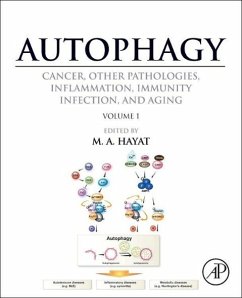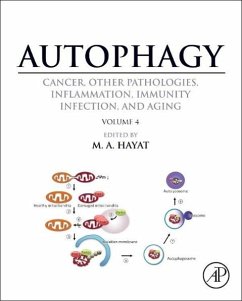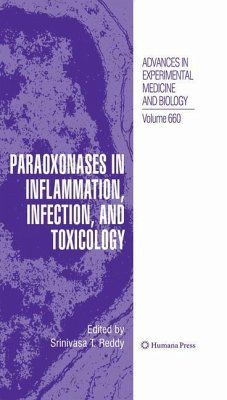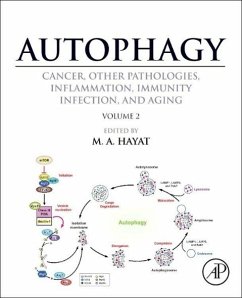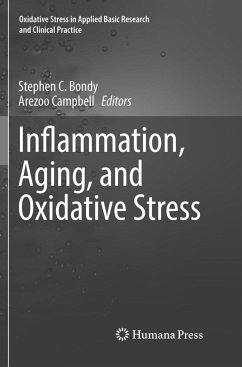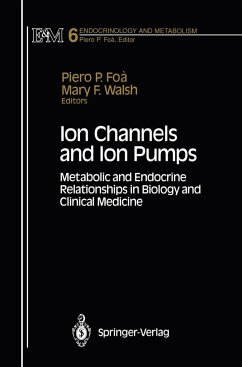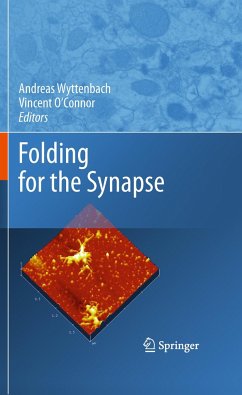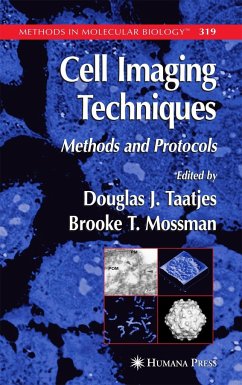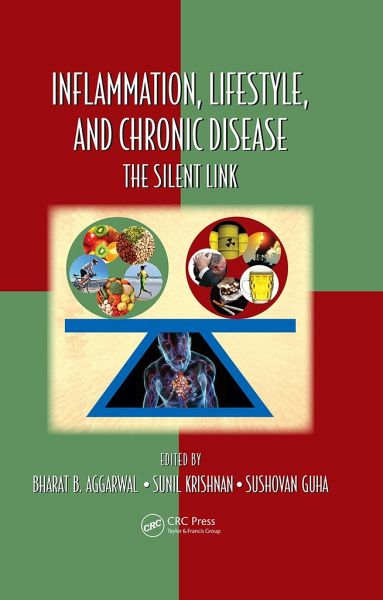
Inflammation, Lifestyle and Chronic Diseases
The Silent Link
Herausgeber: Aggarwal, Bharat B; Guha, Sushovan; Krishnan, Sunil
Versandkostenfrei!
Versandfertig in über 4 Wochen
231,99 €
inkl. MwSt.
Weitere Ausgaben:

PAYBACK Punkte
116 °P sammeln!
As a discussion on the role of inflammation in chronic disease and the effect on lifestyle, this text looks at cancer, autoimmune diseases, neurological diseases, pulmonary diseases, gastrointestinal diseases, metabolic diseases, and cardiovascular diseases. It examines the links between the diseases and risk factors such as chronic infections, obesity, alcohol, tobacco, radiation, environmental pollutants, and high-calorie diets. It covers anti-inflammatory agents made by man and Mother Nature as potential therapeutics to the symptoms and presents research on how the suppression of proinflammatory pathways may provide opportunities for both prevention and treatment of chronic diseases.
Discussing the role of dysregulated inflammation and lifestyle in chronic diseases, this book looks at the link between inflammation and a range of disorders such as neurodegenerative, pulmonary, rheumatic, arthritic, gastrointestinal, skin, heart, and infectious diseases; asthma; insulin resistance; cancer; neuropsychiatric disorders; and chronic wounds. For each ailment, contributors review the clinical and scientific literature, examine current and potential therapies, and suggest directions for future research. Exploring how the suppression of pro-inflammatory pathways may provide opportunities for prevention and treatment, the book examines conventional pharmacotherapies such as steroids and NSAIDs alongside anti-inflammatory dietary agents.





